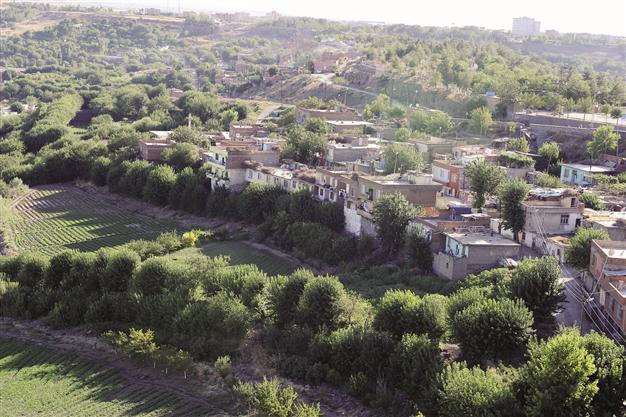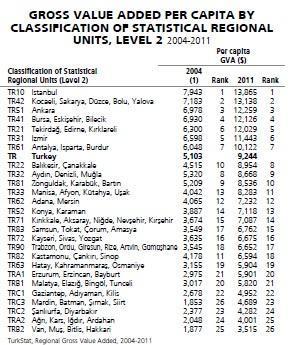Democratic autonomy faces off with centralization in presidential polls
Mustafa Sönmez - mustafasnmz@hotmail.com

The country which is being run in the form of 81 provinces has different issues in every region that do not concern the other. It is not logical to address and decide all of them from Ankara.
The fact that Selahattin Demirtaş, the presidential candidate of the People’s Democratic Party (HDP), has also joined the presidential elections, alongside Recep Tayyip Erdoğan and joint opposition candidate Ekmeleddin İhsanoğlu, has brought a different dimension to the race.The public had the opportunity to hear what a third candidate says – whenever he was given the chance – besides the other two candidates whose discourses they could more or less predict.
The fact that the “third candidate” Demirtaş, as one of the leaders of the Kurdish political movement that is seen as “separatist,” is running for office for the top job in the Republic of Turkey, which presupposes the task of upholding the territorial integrity of the country, is something out of the box.
What Demirtaş says in his speeches is more important and more meaningful than how many votes he will get in the elections.
What the “third” candidate Demirtaş conveys through the microphone contains ideas that are different from İhsanoğlu, even if there is an overlap with the Republican People’s Party (CHP) and Nationalist Movement Party’s (MHP) candidate’s criticisms and suggestions.
Actually both opposition candidates voice, in their own styles, the lawlessness, the despotism of the ruling Justice and Development Party (AKP) regime that polarizes the society domestically and internationally, that impoverishes them, that fractionalizes them… But apart from this, Demirtaş is suggesting a different management style for Turkey: democratic autonomy.
Democratic autonomy
Democratic autonomy, which is mostly presented to the public as a project of the Kurdish political movement, is essentially not a suggestion for a “revolution” but a “reform.” In other words, it is not a practice that would totally change the property relations and the class relations of the regime we are living in; it is a model that is being practiced in many countries of the European Union we are trying to be a part of. It does not have one template; it is a structuring that can be shaped according to the chemistry of each nation…
The best-known practice that could be a model for Turkey is perhaps the one that belongs to Spain. In Spain where the autonomous regions system that was introduced with radical changes in the 1978 Constitution has been in effect – albeit with a number of difficulties and threats of separation from time to time from wealthy Catalonia and the Basque Country – for 35 years.
The main principles of the democratic autonomy model are the transfer of centralized authority and responsibilities to “local” structures so as to produce a more balanced and democratic structural transformation between the center and the local with a fairer amount of control. Each country can use these main principles of the democratic autonomy model on their path to democratization, taking into consideration their own concrete circumstances… And of course Turkey can do this too…
 Why is it necessary?
Why is it necessary? It needs to be seen from the outcome of the AKP regime how this has become so necessary, particularly for Turkey. Since it took power, the AKP has been after adding the judiciary to the domination it already has in the executive and legislative. With the concern that they will remain outside their control and have the potential to tie them down, they have made all of them, the army, the university, the public media and more dependent on them; there have been discharges with a series of operations that also included conspiracies. The Court of Accounts was made dysfunctional, making the national budget almost non-auditable.
They acted as if they were prioritizing local governments but they have shrunk them. In Turkey, there is a local government system that can only use 10 percent of public spending. As if that was not enough, the AKP regime, in order to use the mega city urban incomes with more ease and transfer them to individual savings, have handed over the development and zoning powers of the municipalities to the centrally established Environment and Urban Planning Ministry. Thus, the final target of Erdoğan to crown it all is to ascend to the Çankaya Presidential Mansion and create a presidential system to reinforce his authoritarianism…
Turkey is a multi-identity, multi-cultural country with huge inequalities in every sense, with a population nearing 77 million. One can see the enormous inequality when the income per capita is reviewed according to regions. This kind of inequality is not only non-existent in EU countries, but in OECD countries as well. Our data show that we are competing with Mexico in the negative race.
Between the per capita income of Istanbul which occupies top place on the list and Van which is at the bottom of the list, there is an inequality of a rate of 3 to 13. The inequality in income per capita openly demonstrates itself in all development components such as education, health, justice and employment. The government’s neoliberal policies have enlarged the gap in favor of Istanbul instead of narrowing it.
The country which is being run in the form of 81 provinces has different issues in every region that do not concern the other. It is not logical to address and decide all of them from Ankara. It is a waste of time to act as if it is possible to solve all the issues of all the provinces with the same templates. More important than all of this, it is ridiculous and humiliating to minimize the participation of the masses to ballot-box voting every five years and dub this democracy.
As Demirtaş has voiced in these elections, it is more democratic to group together the 81 provinces into 20 to 25 regions, then transfer Ankara’s powers and responsibilities to regional administrations elected through democratic elections. It is more accurate to recognize the autonomy of these regions, these clusters and these regional parliaments to generate their own solutions for their own regions. What kind of powers? These could be determined with a constitutional amendment. The defense, foreign policy, finance and macro-economic powers of the center could be preserved, but whatever can be transferred to local administrators can be determined so that regional administrations can use them. There is no need to discover America again. A thorough examination of the Constitutions of countries with diverse identities and colors would be sufficient to produce a model.
What it is and is not
This is an administrational reform, a democratization project that can be adopted by the CHP that has a social democratic essence. However, inclinations to reject this project and seeing it as an ill-intended separatism attempt overrides all other views on the matter, since the Kurdish political movement is the one that brought this onto the agenda, while there is confusion among Kurdish politicians as well.
Kurdish politicians complain about this perception, but it is also responsible for the lack of clarity, as there are still some that start their sentences with “Kurdish autonomous region” when defining the regions in the issue. In addition to that, the foundation of a “regional party” apart from the HDP provokes those perceptions.
The regional autonomy is doomed to fail if it is perceived as a project designated for Kurds’ freedom objectives. Whatever the victimization of the Kurds, Alevis have an identity, the eastern Black Sea has subsistence and the environment, Central Anatolia has jobs and food, Istanbul is full of plundering and İzmir has exclusion problems. And regional autonomy should not only be about identity, but also a project that aims to reduce victimhood stemming from class disparities, unjust distribution, plundering and barbarism.
It also should not define the regions on an ethnic basis, particularly considering the fact that half of Kurds are living in the western provinces of the country.
















